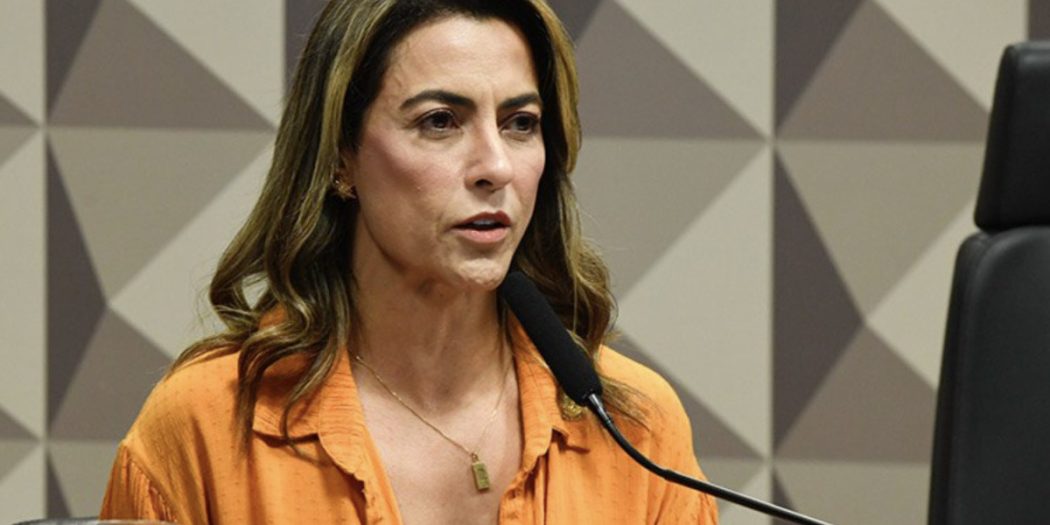The testimony of former gambling addict André Rolim shocks the CPI of Bets, which will recommend urgent actions to protect vulnerable customers from engaging with gambling.
The Brazil Bets regime’s safeguards to protect vulnerable consumers have been examined in the ongoing Commission Parliamentary Inquiry (CPI) investigating the financial and economic liabilities of Brazil’s growing online gambling marketplace.
A tense testimony was presided over by Senator Soraya Thronicke (Podemos-MS) ‘CPI of Bets’ leader, as former gambling addict and businessman André Rolim gave a personal account of how online gambling destroyed his life.
Rolim, who claims to have lost millions to digital gambling platforms, described the disorder as “a silent illness” that quietly undermines families, finances, and mental health.
“Winning in gambling is a beautiful dopamine which goes through the roof,” Rolim testified. “But losing? It’s a shame. It’s a disappointment. It’s the kind of thing that makes you want to disappear.”
The room was visibly shocked by Rolim’s testimony that was delivered with raw emotion as he recounted years of compulsion that escalated with the advent of digital gambling platforms, eventually leading him to accumulate debts with credit card companies, family, friends, and even loan sharks.
“I lost my house, my car, and I’m still paying off the consequences,” he said. “When an addict is active, there’s no policy, no rule that can stop them. They lie, they deceive, they find a way to play.”
Weighing the social costs of delayed regulation
During the hearing Senator Thronicke stated that the legislative response to online gambling in Brazil has been slower than the expansion of the industry.
The legalisation of fixed odds betting occurred in 2018 but formal regulations were not implemented until 2023 through Law 14.790/2023.
“We are learning and legislating on the go—changing the tire while the car is already in motion,” Thronicke admitted. “This is a new and uncharted territory for all of us.”
Thronicke expressed concern about the simplicity of access that Rolim and possibly thousands of others had to unregulated gambling platforms before the Bets regime became formalised. She wondered how many unaccounted victims had become addicted to gambling without anyone to turn to or anyone to recognise their situation.
Advertising is viewed as manipulation of audiences
Senator Damares Alves (Republicanos-DF) spoke passionately against the ‘unregulated coverage’ of gambling on digital and social media platforms, demanding an intervention by lawmakers.
Alves spoke strongly against betting advertisements because she believes they “exploit emotional and psychological manipulation of consumers, in their marketing tactics.
“You don’t treat an alcoholic by offering them a drink,” Alves stated. “So how do we help a gambling addict if they’re being bombarded with ads every second of the day?”
Alves is the rapporteur for Bill 3563/2024, which proposes a complete ban on advertising and sponsorship in the betting sector. Her legislative push follows growing concerns that marketing — often involving celebrities and sports figures — is playing a significant role in glamorising online gambling and attracting younger demographics.
Limit access and exposure
Throughout the hearings, Rolim painted a harrowing picture of a gambling environment that lacked barriers, especially in the digital space. He explained how gambling became increasingly accessible, especially as platforms removed traditional friction points that existed in physical betting environments.
“In the past, if I wanted to gamble, I had to go somewhere. I had to leave the house, have an international card, and work around time limits,” he said. “Today, I can say I’m watching a movie on the balcony, but I’m actually betting. It’s 24/7.”
He urged the commission to consider stronger time limits on gameplay, tighter identity verification, and stricter restrictions on advertising tied to celebrity endorsements or major sporting events. Nonetheless, Rolim acknowledged that during his addiction, no restriction would have stopped him.
Accountability of former infringements
In response to the testimonies Thronicke has called for direct action, summoning executives of Playflow Processadora de Pagamentos, Pinbank Brasil and Brax Produção e Publicidade. These firms have been called upon as it is believed to have ties with gambling platforms that face investigation.
The committee has recalled lawyer Adélia de Jesus Soares for further questioning because she faces investigation for her supposed cooperation with a foreign business operating illegal gambling activities.
Central Bank president Gabriel Galípolo has received an invitation to explain the institution’s functions in monitoring financial flows related to gambling activities prior to the regulated launch of the Bets regime on 1 January.
Bets must ensure comprehensive protection of Vulnerable players
The ongoing hearings have created a collective awareness among lawmakers about the necessity to regulate Brazil’s online gambling sector. Both Thronicke and Alves plan to submit complete reforms that address protection of players and advertising standards and financial openness in the industry.
The issue extends beyond individual cases according to Thronicke. A fundamental problem exists because it impacts both public health and national finance and social well-being.
In February the Secretariat of Prizes and Betting (SPA) published its consultation on the 2025 agenda, in which it had prioritised the development of a federal gambling self-exclusion network.
The consultation highlights the technical complexity of the self-exclusion scheme, which will require input from all relevant stakeholders, including operators, banks, local authorities, media platforms, and healthcare networks. Following the consultation, the SPA will provide a detailed project outline.
Don’t forget to subscribe to our Telegram channel!

